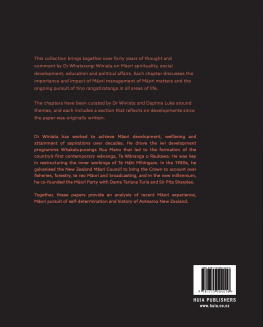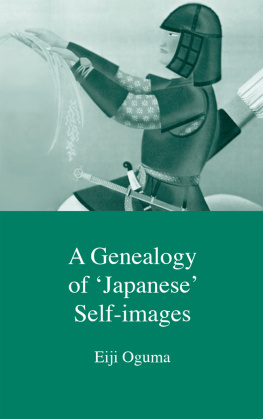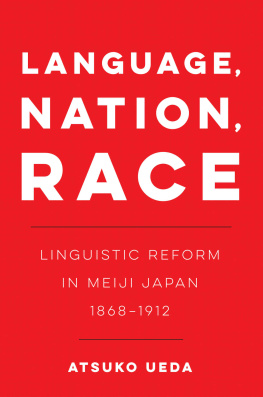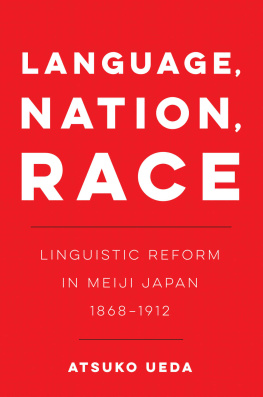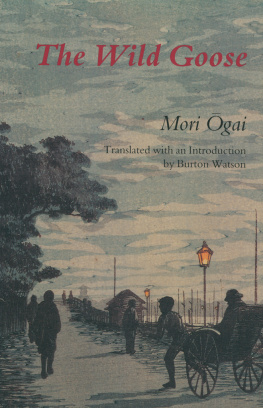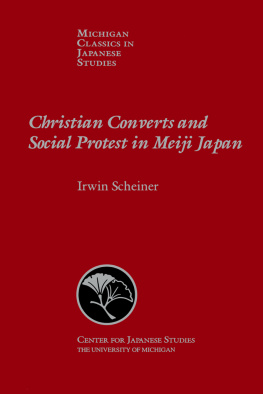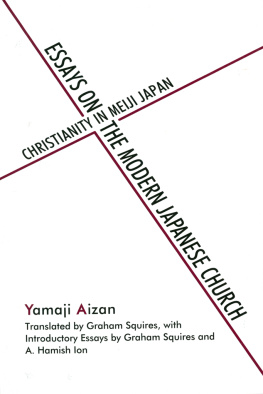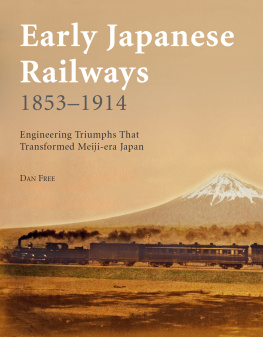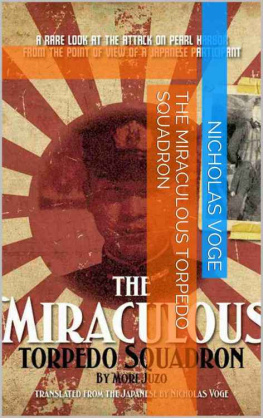THE POLITICAL THOUGHT OF MORI ARINORI
A STUDY IN MEIJI CONSERVATISM
The Political Thought of
Mori Arinori
A Study in Meiji Conservatism
Alistair Swale
MEIJI JAPAN SERIES: 7
THE POLITICAL THOUGHT OF MORI ARINORI
A STUDY IN MEIJI CONSERVATISM
First published 2000 by
JAPAN LIBRARY
Published 2013 by Routledge
2 Park Square, Milton Park, Abingdon, Oxon OX14 4RN
711 Third Avenue, New York, NY 10017 USA
Routledge is an imprint of the Taylor & Francis Group, an informabusiness
Alistair Swale 2000
All rights reserved. No part of this publication
may be reproduced, stored in a retrieval system,
or transmitted in any form or by any means,
without prior permission in writing from the Publishers,
except for the use of short extracts in criticism.
British Library Cataloguing in Publication Data
A CIP catalogue entry for this book is available from the British Library
ISBN 978-1-315-07352-1 (eISBN)
For Yurika, Ryuichi and Sascha
Contents
THIS BOOK is the result of an extended period of research into the impact of evolutionary social and political philosophy on the intellectual and political developments in Japan from the Meiji Restoration to the promulgation of the Imperial Constitution in 1889. In the course of this work Mori Arinori emerged as one of the most intriguing and arguably under-researched intellectual figures of his generation, a figure who deserves a higher appraisal of his contribution to Japan's nineteenth-century development than he has to date. One of the main obstacles to that appreciation has been the lack of an appropriate framework to evaluate him. This work proposes conservatism as the most relevant political tradition to locate him in, although there are allowances that have to be made for his rather extraordinary willingness to countenance radical means to obtain political ends, ends which, in the final analysis, were ultimately liberal. The outcome is in one sense a challenge to the persistent tendency to evaluate the leading figures of that period by their proximity to pro-democratic or pro-government interests. Such a polarity is largely arbitrary and simply does not reflect accurately the complexities of developments in the first half of the Meiji Period. In the case of Mori, the need for employing a new framework has been particularly apparent.
Special thanks are due first and foremost to my mentor at Kyoto University, Professor Kimura Masaaki, who has provided a consistently pertinent critique of the text along with encouragement to persevere in the face of considerable difficulties. I am indebted likewise to other distinguished senior colleagues; Professor Mizobe Hideaki of Kyoto Sangyo University, Emeritus Professor Yamashita Shigekazu of Kokugakuin University, Professor Ito Yukio of Kyoto University and Professor Yamamuro Shinichi of the Institute for Research in the Humanities, Kyoto University. I should also like to acknowledge the generous financial assistance of the Asia 2000 Foundation of New Zealand and the Research Committee of the University of Waikato, along with the kind cooperation of London University's Paleontology Room, which houses the Spencer papers, and the secretary of the Athenaeum Club, London, who kindly responded to enquiries regarding Mori Arinori's connection to that institution. I would also wish to express my gratitude to colleagues at the University of Waikato who have been at all times supportive and stimulating.
ALISTAIR SWALE
April 2000
MORI WAS ONCE LIKENED to a 'lone pine atop a winter mountain'. Perhaps this accurately represents the rather isolated position that Mori held as both a politician and a thinker amongst his contemporaries. Certainly he has eluded simple classification within the main strands of intellectual history in the Meiji period. In his thought and actions we find evidence that can be used to place him in quite disparate political standpoints. It would seem that at times there are two Mori's vying for predominance, a liberal and a conservative. There is the liberal who championed freedom of religion and the equality of women. There is the conservative who established military training in schools and a highly centralized educational administration. However, the fact is that Mori was too complex a character to be classified according to conventional political categories. Even at his most conservative, he was capable of extraordinarily radical policy initiatives, for example, though full of the samurai vig-our and determination to defend Japan from external threat, he could countenance the abolition of the Samurai's prerogative of wearing swords. Conversely, while championing the full-scale modernization of Japan, he was, nonetheless, reluctant to endorse the introduction of a Western-style representative system of government.
Mori was, therefore, undoubtedly a man of many paradoxes. He was also someone who seems to have drawn negative appraisals from both sides of the political spectrum, sometimes with ironic consequences. Tokutomi Soho coined the phrase 'tenko' to refer to Mori's so-called 'betrayal' of the liberal cause to espouse 'statism', (although Tokutorni arguably became a case in point himself in the later stages of his life). It was this Mori, the statist 'collaborator', who was assassinated on the grounds of an alleged lack of respect for the Emperor and, despite his enormous contribution to the nation, it was the funeral of the dead assassin that attracted more public sympathy than that of Mori.
The aim of this book, quite simply, is to attempt a broad reevaluation of Mori's life and work, avoiding (but not rejecting altogether) conventional political categories employed in the analysis of Meiji intellectual history. If one attempts to understand Mori in terms of the dominant trends of Meiji political thought, one ends up having to try to make sense of him as, by turns, either a participant in the Liberal Democratic Movement (via the Enlightenment Movement), or a willing collaborator with the 'reaction' that culminated in the Meiji Constitution and the Imperial Rescript on Education. By taking this approach, however, one is forced to push inconvenient aspects of Mori's thought into the background for the sake of maintaining analytic consistency. The fact is that there are alternatives to these conventional scenarios and, in the case of Mori in particular, it is necessary to explore them as fully as possible.
The avenue that this book explores is the relationship between Mori and the contemporary developments in evolutionary social thought in mid to late nineteenth-century Britain. In particular the relationship between Mori and Herbert Spencer (1820-1903), which was of a personal as well as an intellectual nature, will be examined. Having said this, the object is not to present Mori as the passive recepticle of Spencerian thought, but rather as a participant in an intellectual movement that was, in its time, neither unusual nor arcane. The primary aim is to capture the development of Mori's political and social thought on its own terms, using the contemporary conceptions of social organicism and gradualism as a framework for the reconstitution of the original intent.
Mori was, in fact, perfectly clear about the nature of his endeavour to clarify the implications of this intellectual movement for Japan. What is unfortunate is that this intention was often not accurately gauged by his contemporaries in japan as he made his sorties into the thorny issues of the day. Mori was not a thorough-going philosopher of 'grand theory', yet he was a remarkably clear-headed and practical exponent of applying the analytical and prescriptive elements of contemporary social evolutionism.


